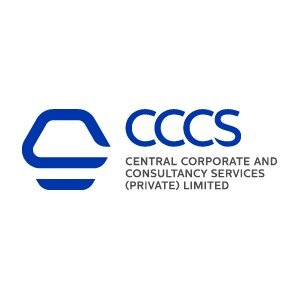Best Mining Law Lawyers in Sri Lanka
Share your needs with us, get contacted by law firms.
Free. Takes 2 min.
Or refine your search by selecting a city:
List of the best lawyers in Sri Lanka
About Mining Law in Sri Lanka
Mining law in Sri Lanka governs the exploration, extraction, and processing of minerals found within the country. It provides the legal framework for obtaining mining rights, environmental protection, safety standards, and the management of natural resources. The principal legislation is the Mines and Minerals Act No. 33 of 1992, which outlines the procedures for licensing, regulation, and oversight of mining activities. The law reflects the government’s emphasis on sustainable development, environmental conservation, and responsible use of mineral resources, such as graphite, gems, limestone, clay, and sand.
Why You May Need a Lawyer
Mining law can be complex and highly regulated. You may need a lawyer for several reasons if you are involved in the mining sector in Sri Lanka. Common situations include:
- Applying for exploration or mining licenses
- Resolving land ownership or use disputes
- Navigating environmental compliance and impact assessments
- Negotiating joint ventures, partnerships, or mineral rights agreements
- Challenging decisions by regulatory bodies or addressing violations
- Handling import and export regulations for minerals
- Claims related to compensation or damages arising from mining activities
- Understanding changes in law and policy that affect mining rights
An experienced mining lawyer can help protect your investments, ensure regulatory compliance, and represent your interests before authorities or the courts.
Local Laws Overview
The main legal framework governing mining in Sri Lanka is the Mines and Minerals Act, administered by the Geological Survey and Mines Bureau (GSMB). Key aspects include:
- Licensing: All mineral exploration and mining require licenses issued by the GSMB. License types include exploration, mining, trading, processing, and exporting.
- Ownership: Mineral resources are vested in the State, regardless of land ownership status.
- Environmental Oversight: Environmental Impact Assessments (EIAs) are mandatory for certain mining operations, ensuring activities do not harm ecosystems.
- Health and Safety: The Act outlines minimum safety standards for workers and the public.
- Compliance and Enforcement: Regular inspections by authorities enforce compliance with laws and regulations.
- Community Rights: Provisions exist for protecting traditional rights and requiring consultation with local communities.
The law also interacts with other statutes relating to land, environment, labor, and customs, making legal guidance important for compliance.
Frequently Asked Questions
What minerals are commonly mined in Sri Lanka?
Sri Lanka is renowned for its gem stones such as sapphires and rubies, as well as graphite, ilmenite, limestone, clay, and sand.
Who owns mineral resources in Sri Lanka?
All minerals are owned by the State, regardless of whether the land is owned by private parties or the government.
Do I need a license to engage in mining?
Yes, all exploration, mining, processing, trading, and exporting of minerals require official licenses from the GSMB.
How do I apply for a mining license?
Applications must be submitted to the GSMB, along with necessary documentation such as business registration, technical proposals, environmental approvals, and landowner consent if required.
Are there environmental requirements for mining projects?
Yes, most mining activities require environmental clearance. Large projects or those in sensitive areas must undergo Environmental Impact Assessments.
Can foreign investors participate in mining in Sri Lanka?
Yes, foreign investors can invest in mining but must comply with local laws, obtain necessary permits, and may be subject to certain restrictions or approvals.
What happens if I mine without a license?
Illegal mining is a serious offense. Penalties include fines, imprisonment, and seizure of equipment and minerals.
How are disputes over mining rights or land use resolved?
Disputes can be resolved through negotiation, mediation, or, if necessary, litigation in Sri Lankan courts. The GSMB also provides dispute resolution mechanisms.
Am I liable for environmental damage from mining?
Yes, operators can be held liable for remediation costs and damages caused to the environment or communities due to mining activities.
How long is a mining license valid?
The validity of a mining license ranges from one to several years, depending on the type of license and mineral, with renewal possible upon compliance with legal requirements.
Additional Resources
The following resources and organizations may be helpful:
- Geological Survey and Mines Bureau (GSMB): The main regulatory agency for mining activities
- Ministry of Industries
- Central Environmental Authority (CEA)
- Sri Lanka Export Development Board
- Chamber of Mines of Sri Lanka
- Local law firms specializing in mining and environmental law
Next Steps
If you need legal assistance in the field of mining law, consider the following steps:
- Define the nature of your mining activity, investment, or legal issue
- Prepare all relevant documentation, including business registrations, land deeds, licenses, and correspondence with authorities
- Consult a qualified mining law attorney who is familiar with Sri Lankan regulations
- Stay updated with local laws and regulatory changes affecting the mining sector
- If required, seek assistance from government agencies such as the GSMB or the CEA
Working with legal professionals ensures that you comply with the law, protect your investments, and achieve your mining objectives in a responsible and efficient manner.
Lawzana helps you find the best lawyers and law firms in Sri Lanka through a curated and pre-screened list of qualified legal professionals. Our platform offers rankings and detailed profiles of attorneys and law firms, allowing you to compare based on practice areas, including Mining Law, experience, and client feedback.
Each profile includes a description of the firm's areas of practice, client reviews, team members and partners, year of establishment, spoken languages, office locations, contact information, social media presence, and any published articles or resources. Most firms on our platform speak English and are experienced in both local and international legal matters.
Get a quote from top-rated law firms in Sri Lanka — quickly, securely, and without unnecessary hassle.
Disclaimer:
The information provided on this page is for general informational purposes only and does not constitute legal advice. While we strive to ensure the accuracy and relevance of the content, legal information may change over time, and interpretations of the law can vary. You should always consult with a qualified legal professional for advice specific to your situation.
We disclaim all liability for actions taken or not taken based on the content of this page. If you believe any information is incorrect or outdated, please contact us, and we will review and update it where appropriate.
Browse mining law law firms by city in Sri Lanka
Refine your search by selecting a city.

















